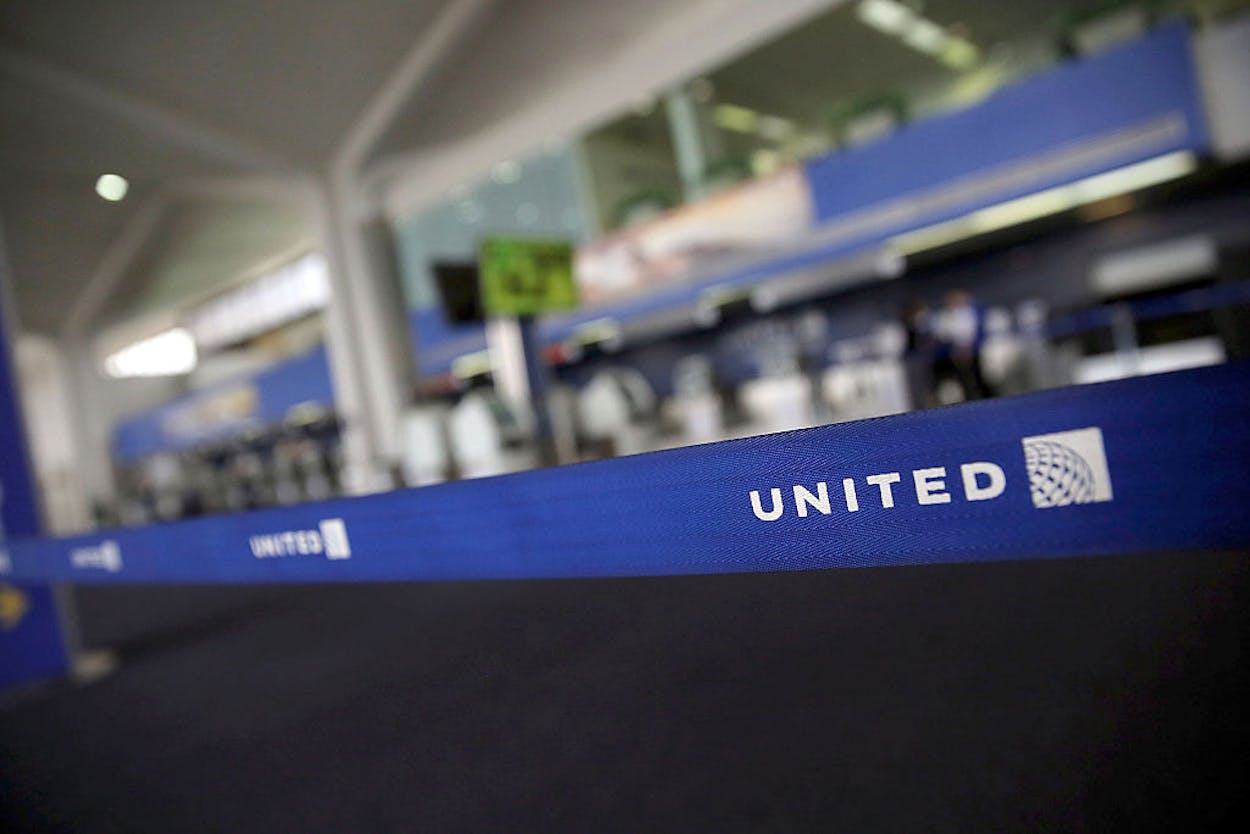Five years after it merged with United, Texas Monthly‘s Loren Steffy wrote about the legacy of Houston-based airline Continental and the sharp culture shift that occurred after it was brought under United Airline’s banner.
Continental was a paradigm of the sort of corporate innovation that Houston has long prided itself on. “Continental’s whole history was being a maverick airline,” says Phil Bakes, the company’s president in the mid-eighties. And much of that history was tossed out the window after it was swallowed up by United. “When the merger was announced, I went, ‘Uh-oh,’” says Huntsville businessman Rich Heiland, who flew about 100,000 miles a year on Continental. As a management consultant, Heiland knew that the biggest hurdle for the two companies wouldn’t be integrating systems, processes, or technology but reconciling their cultures. “When it was announced that the headquarters would be in Chicago, I felt the war was lost.” He still flies regularly on United—he really has no choice, as the airline accounts for the vast majority of flights out of George Bush Intercontinental Airport—but he says the quality of the service has declined markedly.
In the two years since Steffy explored United’s impact on Houston, the airline’s unique approach to dealing with its customers has edged it toward a full-blown PR crisis. Here’s the latest example: On June 29, a woman traveling with her two-year-old son boarded a connecting flight from Houston to Boston. She had paid $969 for her son’s ticket, according to the Houston Chronicle. But after boarding the plane, the woman was told that the seat next to her had been sold to another passenger, and that she’d have to keep the two-year-old on her lap for the three-and-a-half hour trip—which the Federal Aviation Administration says is unsafe.
United explained the incident in a press release:
On a recent flight from Houston to Boston, we inaccurately scanned the boarding pass of Ms. Yamauchi’s son. As a result, her son’s seat appeared to not be checked in, and staff released his seat to another customer and Ms. Yamauchi held her son for the flight. We deeply apologize to Ms. Yamauchi and her son for this experience. We are providing compensation as a goodwill gesture. We are also working with our employees to prevent this from ever happening again.
Yamauchi told the Chronicle that the compensation offered by the airline “wasn’t satisfactory,” and added that airport staff and the airline’s customer service department were rude to her until she went to the press.
United has had a turbulent couple of months. The company famously made headlines in April after another ticketed passenger, Kentucky physician David Dao, suffered a broken nose and a concussion after he was dragged off of a flight. (Yamauchi cited the incident in an interview with CNN affiliate KITV, explaining that she didn’t want to make a scene.) A little over a month later, an incident in Houston attracted attention when a musician traveling with a violin was reportedly in a physical confrontation with a gate agent who told her she couldn’t carry her 300-year-old instrument on board.
And in June, Ronald Tigner sued the airline over a 2015 incident in which he alleges he was thrown to the ground by a United employee when he tried to get a new boarding pass (surveillance camera footage shows still images of the confrontation). Tigner’s attorney told the Chronicle that his client—who was 71 at the time of the alleged incident—decided to go public after Dao was dragged from his flight, but that he had struggled to make progress with the airline for two years. He’s suing the airline for $1,000,000.
It’s unclear if Yamauchi will pursue legal recourse after the unsatisfactory “goodwill” gesture. But each time an incident like this happens, goodwill seems to be in increasingly short supply at United. That, perhaps, wouldn’t surprise former Continental head Phil Bakes. “United’s history is one of bureaucracy and arrogance,” Bakes told Texas Monthly in 2015. Unfortunately, for fans of the old Continental, that was the behavior that “ended up being more dominant” after the merger.








